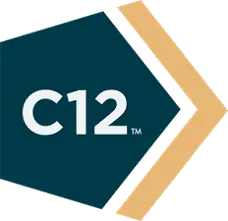Small Business and Individual Tax Planning
There is an old saying, “Time flies when you are having fun”–and the end of the year is approaching quickly.
Here at New Economy, we are having a blast. Our team and culture are healthy, many of our customers are thriving and we are on track to hit our financial targets and annual goals. It’s great news for sure, but with financial success comes taxes.
The good news is there is still time to plan, prepare and strategize.
Before December 31st you have the opportunity to make decisions to mitigate your taxes, invest in your business, and keep more money in your pocket. For many of you, your business situation will have a big impact on your personal tax situation.
Are you planning ahead as it relates to your tax situation?
If not you should–and here is the good news…
At New Economy, we’ve created a team, process, and tools to help you keep more of that hard-earned profit in your pocket. As we are entering into the fall, now is the time to pay attention to this.
We want to help you gain control of your finances to make smart decisions to build and grow your Company.
In this article, you will learn about:
- Some of the situations, pain points, and pitfalls of not planning properly for taxes
- Our repeatable process to mitigate and plan for your small business and individual taxes
- What success looks like as it relates to properly planning for taxes
- Top Takeaways
Let’s dive in.
What are some of the situations, pain points, and pitfalls of not planning properly for taxes?
Overall, the goal of tax planning is to avoid last-minute surprises, to make good decisions balancing cash flow and mitigating taxes, and to be proactive in applying tax strategy on an ongoing quarterly basis.
Situation
First, let’s talk about the situation. If you are an S-corp or LLC with profits at year-end and cash in the bank we are talking to you. As a flow-through entity, the profits of the business will be taxed at your individual level.
It’s pretty simple and here is an example.
Example 1
Tom owns 100% of Toms shoes. As of December 31st, the Company is projected to have a net income of $100,000 ($500,000 of Revenue – $400,000 of Expenses). Since Tom owns 100% of the Company, the entire $100,000 will flow over to Tom’s personal tax return and be taxed at Tom’s Individual tax rates.
But what if there was a way to reduce the profits, thus reducing the taxes while reinvesting in the business, team, or future of the Company?
Keep reading.
Pain points
Ok–so based on the examples above Tom is having a great year. However, let’s assume he is not planning for taxes. They are so focused on generating profit that they lost sight of the fact that they actually have taxes to pay.
Ok, great, but where is the pain?
Example 1
In October, Tom’s financial controller from New Economy told him that his Company is projected to earn $100,000 in profit by the end of the year. (See our post on financial controllers). With this information, Tom has a choice to make.
- Option 1 is to do nothing. If Tom does nothing the $100,000 will flow through to his personal tax return and he will pay taxes at his personal rate on the entire amount.
- Option 2 is to do some tax planning with New Economy’s Tax Advisor. After some conversations with the New Economy Tax Advisor, Tom has decided to buy a piece of equipment. The equipment will enable him to take on new customer orders in the new year increasing revenues by $250,000. The cost of equipment is $50,000 which Tom is able to finance most of. Further, Tom is able to write off the entire cost of the equipment in the new year.
Here are the tax results under each option.
Under option 1, Tom is paying taxes of $24,000 ($100,000 profit x 24% tax rate).
Under option 2, Tom is paying taxes of $12,000 ($50,000 profit x 24% tax rate). Tom has reduced his net income to $50,000 ($100,000 profit – $50,000 equipment). Further, he is able to grow his business in the new year taking on an additional $250,000 of revenue.
Which option would you prefer?
You can pay $24,000 in taxes or pay $12,000 in taxes while increasing your capacity to grow revenues by $250,000 in the upcoming year.
We feel great about helping to navigate option 2. He has made a smart decision that is helping him build and grow his business.
This was a simple example but many times opportunities are missed.
To learn why, keep reading.
Our repeatable process to mitigate and plan for your small business and individual taxes
Many business owners miss out on opportunities to apply tax savings strategies.
But why is that?
At New Economy, we believe it is the result of two things being people and process.
People
We will be quick here.
It is important to understand the difference between a tax preparer and a tax advisor.
A tax preparer is someone who will take your information and prepare your business and personal tax return. Often this is done post-year end when the information becomes available.
A tax advisor is someone who will understand your overall situation both personal and business. They will help guide you to making smart decisions to plan for and minimize taxes. Often this is done prior to year end so decisions can be made.
Of course, this can be the same person. However, just be certain that if you have a tax preparer, they have the skills and ability to advise you on tax matters.
The goal is to keep more money in your pocket by paying less taxes. A tax advisor is able to help you achieve that goal.
Process
Our customers are benefitting from ongoing tax advisory services.
They are benefiting as they are paying less in taxes, not being surprised by the tax situation, and they are keeping more money in their pocket.
Most people think about their taxes at the end of the year. That is fine, but we think about taxes on an on-going basis–such as quarterly.
The way to support this effort is through process. New Economy has a tax advisory process and here is a high-level glimpse into our system for customers that are interested in tax planning.
- Onboarding Meeting – Our tax advisor takes part in our customer onboarding meetings. It is important for our customers to build some trust and credibility with our tax advisor so we jump in head first at the beginning of the relationship. This enables the tax advisor to get a sense of the overall landscape.
- Sharing of Monthly Financials – Our tax advisor has access to the monthly financials that are reviewed. This enables the tax advisor to stay up to speed on the financial condition of the business. After all, it’s a healthy financial condition that supports the need for tax planning.
- Quarterly Tax Meetings – This is where the magic starts to happen. Our tax advisors have quarterly tax meetings with their customers. This allows the relationship to continue to grow and information to be shared. In that sharing of information, we are able to identify tax opportunities, mitigate tax risk, and advise our customers on all things tax-related. Think of it this way: You have a tax advisor on your team with the goal of helping to keep more money in your pocket.
- Year-end Projection Meetings – This is where our tax advisor pulls it all together. We typically had 2 to 3 tax planning meetings in the fall. Here we do a detailed projection running “what if scenarios”. Meaning, we talk through various scenarios just like we did with Tom to reduce taxes. We help you create and execute a plan prior to year-end to ensure you are keeping more money in your pocket.
By setting up the simple 4-step tax advisory process we are able to consistently help our clients plan to reduce taxes.
No more surprises around taxes–just peace of mind that you have made smart decisions to build and grow your business.
What success looks like as it relates to properly planning for taxes?
We like to keep things simple.
For our customers, success looks like the following:
- Peace of mind around their business and personal tax situation.
- Confidence knowing that they have taken advantage of all possible opportunities to help them pay less taxes.
Our customers work so hard. And one of the outcomes is to have a healthy business that is profitable. At New Economy, we want to help them to plan effectively so they can enjoy the fruits of their labor.
Here are three key takeaways:
- Know your situation. Meaning, do you need ongoing tax advisory support? If you have been caught off guard in the past by having to pay taxes, the answer is probably yes. Or maybe your businesses are growing and you are projecting to have a healthy profit. Now is the time to consider your needs in this area.
- Assess your current tax person. Are they only tax preparers? Do they have the ability to advise you on tax savings strategies? Even though this can be the same person they often are not. Make sure you have the right team member to help you make smart decisions to build and grow your business.
- Don’t wait. As noted above, we believe tax planning is a year-round process. However, as you start to approach year-end, the window starts to quickly close on the things you can do to ensure you are taking advantage of any tax-saving opportunities.
New Economy Team Members are Experts in Accounting for Entrepreneurs
If identifying ways to decrease your taxes is not in your skill set or you want to gain control of your finances to make smart decisions to build and grow your business, New Economy is an excellent partner.
We’ll help you get your accounting and taxes done, and done right.
Schedule a time to meet with our Founder, Jeff, and discuss how we can add value to your situation.









